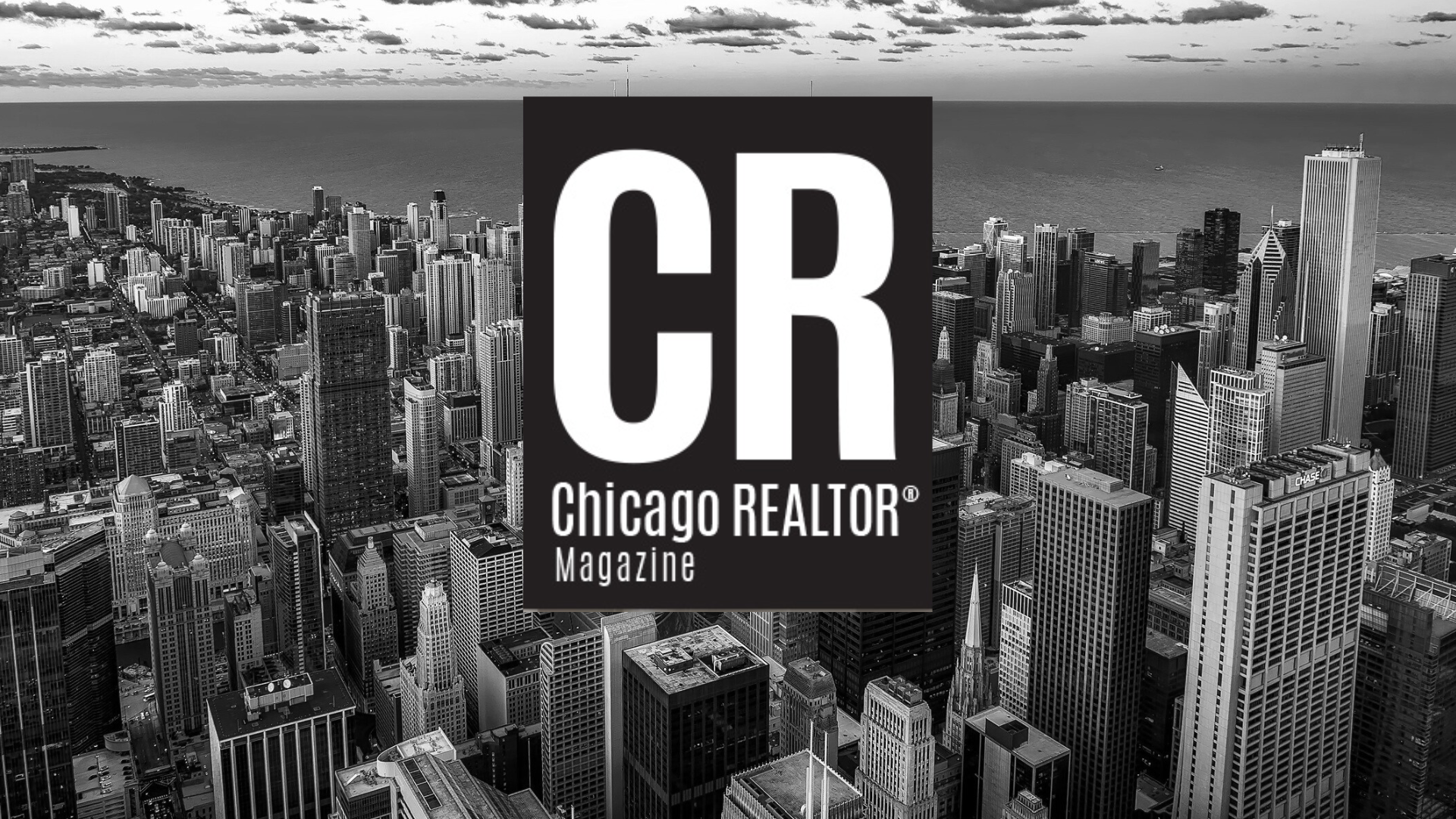For Chicago real estate, 2021 was a more successful year than anyone could have anticipated. Homes flew off the market, sales prices skyrocketed and interest rates remained low, all of which led to homebuying demand we haven’t seen in years.
Three top economists: Dr. Lawrence Yun, National Association of REALTORS®, Danielle Hale, realtor.com®, and Brandon Svec, the CoStar Group, discussed what’s ahead in the residential and commercial markets this year during the 2022 Market Outlook event in January. Here’s what they predicted.
THE CHALLENGES
Inventory
An inventory strain is impacting not only the Chicago market but also the nation, as the number of homes for sale cannot meet homebuying demand. However, “I believe the worst in inventory has now passed,” Dr. Yun said.
He is hopeful that there will be more inventory by springtime due to a variety of factors. Supply chain disruptions are anticipated to diminish, which will help increase new home construction, some buyers will trade up, therefore selling their current homes, and the Mortgage Forbearance Program will end, forcing those with mortgage delinquencies to sell their homes. However, demand is expected to remain high, and while these new streams of inventory will help ease some of the inventory strain, it won’t solve the shortage completely.
Svec echoed this on the commercial side. “We’re seeing a healthy amount of supply come online, but demand has just been so strong that it can’t keep up,” he said.
Interest & Mortgage Rates
According to Dr. Yun, consumer price inflation is currently at 7.1%, the highest level of inflation in 40 years. With this will likely come rising interest and mortgage rates.
“I think we are going to see a steady march upward [for mortgage rates] throughout 2022, and that is going to present a challenge for homebuyers,” Hale said, as these rising rates can diminish the opportunity for potential homebuyers to purchase a home.
For REALTORS®, Hale had tips to help “rate proof” your client’s budget. She suggests not only incorporating current mortgage rates into your client’s budget, but also anticipating what could happen if mortgage rates have a sudden increase and how that will affect them.
“If rates do have a sudden move, you’ll have a game plan and not be completely surprised as a homebuyer. I think that preparation and knowing how to act is really important.”
Affordability
Nationwide, there are just under 46 million people in the first-time homebuying window, which Hale describes as those between the ages of 26 and 35. Typically, these buyers look for more affordable options when purchasing their first home. With both rising home prices and mortgage rates, 2022 homebuyers will be looking at higher monthly payments, affecting affordability.
“First-time buyer demand should be very strong,” Dr Yun said. “Unfortunately, high home prices, and now, rising mortgage rates and lack of starter home inventory is really hindering first-time activity. So, even though we are at peak demographic demand, the lack of supply and very high home prices are hindering first-time buyers.”
With affordability top of mind and increasing demand for larger homes, many people are turning to the suburbs to purchase more affordable homes. “That inner to middle ring of suburbs around the downtown area is where we see the most interest from buyers and where we see homes selling the fastest,” Hale said. According to realtor.com® data, the hottest zip code in the Chicago area, where homes are moving the fastest and getting looked at the most, is Lake in the Hills, where the median home price is $271,900.
Rent
For the commercial and multi-family market, rents are expected to continue to grow at an above-average pace, “just not quite the same blistering pace that they grew at in 2021,” Svec said. “Overall, in 2022, we’re expecting rent growth in the Chicago region to be slightly higher than 6%.” This may make it harder to find properties that meet their
needs and are within their budget.
Downtown Chicago is seeing the highest submarket rent growth at 14%, while the lowest rent growth was in far north Chicago at just 1.3%. However, this issue isn’t specific to just Chicago. Rising rent is a nationwide issue, with some cities seeing as much as 25% rent growth last year.
Shrinking Households
When comparing Chicago in 2021 versus 2020, there were fewer households throughout the city. “This suggests some people have left the Chicago area, or young renters who were on their own maybe moved back in with their parents, or some young people have taken on roommates,” Hale said. This could have a negative impact on the real estate market, as fewer households leads to fewer people looking for places to rent or buy.
THE OPPORTUNITIES
Rent
Yes, rent falls on both the challenges and opportunities side of the list. The opportunity? When it comes to the decision to rent versus buy.
According to Hale, the median Chicago mortgage listing is $1,423 per month. For starter home mortgages, that number is $900. Compare that to the median rent price in the city, which is $1,800. When you crunch those numbers, more renters might look at buying, if they have the opportunity to do so.
“I think a lot of people are exploring their options broadly. And so, what this says to me, is that there is a possibility for renters who are thinking about making a home purchase in the Chicago area…there are available listings out there,” she said.
Homebuyer Demographics
There are two strong homebuying demographics in the housing market right now: the first, as mentioned, is millennial first-time homebuyers; the second is Baby Boomers around the age of 66 who may want to downsize or go to other states. Not only does this provide you with a whole different set of homebuyers, but it also means these individuals are selling their homes, inventory which is much needed on the market to ease demand.
However, that doesn’t mean all Baby Boomers are moving out of the Chicago area. “If we look at Census data, the average renter downtown is growing both older and wealthier, which tells me this is a renter-by-choice more than a renter-by-necessity,” Svec said.
Buying Interest From In-Market
In comparison to other large metro areas, the Chicagoland area ranks highly in buying interest from in-market: 79%, according to Hale. However, we’re lagging when it comes to attracting out-of-market interest. “I think that is one potential area of opportunity, to be a city that’s more attractive to shoppers looking to make a relocation move,” she said.
Unemployment Rates
All three economists unanimously mentioned that unemployment rates are rebounding to pre-pandemic levels throughout the U.S. As we know, employment rates impact housing prices and demand. With positive momentum in this area plus strong job growth expected in 2022, we will hopefully also see that positivity continue in the housing market.
WHAT IT ALL MEANS
When looking at the challenges and opportunities together, all economists forecast a positive 2022.
“The real estate market we expect to remain dynamic,” Hale said.
“If you thought 2021 was a great year, 2022 will match it,” Dr. Yun said.








